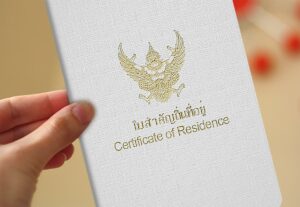Mergers and acquisitions in Thailand mix standard deal mechanics with a distinct regulatory and practical overlay: mandatory tender-offer rules for listed targets, merger control under the Trade Competition Act, industry-specific licensing and foreign-ownership constraints under the Foreign Business Act, and investment incentives or limitations tied to BOI promotion. Successful transactions require a regulatory roadmap up front, careful structuring of the economic deal, exhaustive local diligence, and tightly drafted contract protections that allocate regulatory, tax and integration risk.
Start with a regulatory “map” before valuation
Before you negotiate price, map the regulatory landscape that will drive structure and timing. Key checkpoints include (a) whether the target is listed (and therefore subject to Thailand Securities and Exchange Commission (SEC) tender-offer rules); (b) whether the deal may require competition review or post-merger notification under the Trade Competition Act; (c) whether the target’s business is restricted to foreign ownership under the Foreign Business Act (FBA) or benefits from BOI promotion; and (d) whether sectoral regulators (banking, insurance, telecom, transport, energy) will require pre-closing consents. These points often determine whether a buyer should pursue a share purchase, asset buy, corporate restructure, or alternative vehicle (e.g., lease, long-term management agreement) to achieve the commercial outcome while remaining compliant.
Choice of acquisition vehicle: share vs. asset vs. merger
Each structural choice has predictable tradeoffs in Thailand:
-
Share purchase preserves licenses, contracts and employment continuity but imports contingent liabilities; mandatory tender-offer rules (which are triggered at specified voting-right thresholds) also apply to share acquisitions of listed issuers and often dictate the tactical path for a buyer.
-
Asset purchase limits legacy liabilities but typically requires re-registration of licenses, permits and sometimes land transfers—creating friction where regulatory consents or transfer taxes apply.
-
Statutory merger (amalgamation) can consolidate groups but carries formal creditor notice, dissent mechanics and statutory process that can be slow. For regulated sectors, the merger route may be constrained or require regulators’ approvals.
Choice should be made after mapping regulatory timelines, conditionality and the buyer’s appetite for inherited risk.
Tender offers and listed targets
Thailand’s takeover regime is built around mandatory tender offers: when an acquirer (alone or acting in concert) crosses statutory voting-right thresholds, an obligation to make an offer to all shareholders typically arises. These rules are procedural and onerous: they require public disclosures, a formal offer document, timed offer windows and potentially expensive full-board or minority protections. As a practical matter, the tender-offer regime frequently defines tactics—whether to accumulate quietly below the trigger, seek board support to negotiate a private transaction, or structure a staged acquisition with waivers and lock-ups.
Merger control and competition risk
Merger control in Thailand is primarily enforced under the Trade Competition Act and related notifications. Notification thresholds are not strictly numerical in the way some jurisdictions have fixed turnover baskets; instead they focus on whether the transaction creates or enhances market dominance or substantially lessens competition in a relevant market. Parties must analyze market shares, sector concentration, and local competitive dynamics early. Where competition risk is material, deal documents should include regulatory condition-precedent language, timetables for notification, and fallbacks (reverse break fees, hold-separate covenants, or divestiture undertakings).
Foreign-ownership constraints and BOI interaction
The Foreign Business Act places sectors into Lists (1, 2 and 3), with varying degrees of restriction on foreign participation. For transactions involving restricted businesses, buyers may need to secure a foreign business license, restructure ownership to meet Thai-ownership minimums, or rely on special carve-outs (capital thresholds or BOI promotion). BOI-promoted companies can enjoy higher permitted foreign ownership and tax incentives, but BOI promotion often imposes conditions—transfers of promoted status or changes in shareholding can require prior BOI consent. Diligence must confirm that the target’s promotion status is transferrable and that any transfer-triggering events are contractually addressed.
Due diligence: regulatory, commercial, tax and people risks
Due diligence in Thailand must be comprehensive and local-flavored:
-
Regulatory: licenses, permits, BOI status, foreign-ownership compliance, sectoral consents, and past interactions with regulators.
-
Corporate: shareholder registers, nominee or trust arrangements (nominee shareholdings can mask real owners), extraordinary board approvals, and inter-company guarantees.
-
Real estate: title type (chanote vs. possessory certificates), conversion status (agricultural to commercial), and lease/land-use constraints.
-
Employment: statutory severance, collective agreements, and key-person continuity—Thai labor protections can shape post-closing cost.
-
Tax: historical tax filings, transfer tax and stamp-duty exposure, and potential exemptions for restructures or BOI transfers.
-
Litigation & enforcement: pending suits, Department of Legal Execution actions, and liens.
Use local counsel, surveyors and tax advisers; many disputes in Thailand hinge on documentary gaps that local diligence would have revealed.
Deal documents and allocation of regulatory risk
Key contractual protections include: detailed representations and warranties (with local nuances), conditions precedent tied to regulatory consents, specific escrow/indemnity and holdback mechanics to secure contingent liabilities, and express BOI/sectoral consent undertakings. For listed target deals, bespoke tender-offer carve-outs and waiver mechanics are essential. Sellers often resist broad tax and regulatory reps—expect intensive negotiation on caps, survival periods and knowledge qualifiers. For high regulatory risk, buyers may negotiate price reductions, reverse break fees, or escrow funded at closing.
Timing, interim measures and enforcement planning
Regulatory approvals (BOI, sectoral, competition clearance, SEC filings) drive timing and can be slow. Parties should plan interim governance (standstill, board seats, transitional service agreements) and consider provisional measures: escrow, share-locking, or court-ordered interim relief if assets may be dissipated. Always plan enforcement routes early—identify where assets sit, whether Thai judgments or arbitral awards will be required, and how to secure remedies if the seller fails to perform.
Integration and post-closing governance
Integration can create as much value (or pain) as the deal price. Labor integration, retention of local management, re-registration of contracts, and compliance with BOI post-approval conditions require project management. If the target is BOI-promoted, ensure post-closing operations continue to satisfy promotion conditions; otherwise promotion can lapse, and penalties or forced divestment may follow.
Practical pitfalls and red flags
Watch out for: nominee shareholder structures that mask beneficial owners; land issued under agricultural certificates requiring conversion; undisclosed BOI conditions or past non-compliance; tender-offer trigger miscalculations; opaque related-party transactions; and thin capitalization structures that create tax or enforcement exposure. Where these appear, demand remediation before closing or calibrate protections (higher escrow, longer survival).
You might also enjoy

Thai Business Partnership
A Thai business partnership is one of the most commonly

Thailand Permanent Residency
Thailand Permanent Residency (PR) is a highly sought-after immigration status

Child Custody in Thailand
Child custody in Thailand is governed by the Civil and


